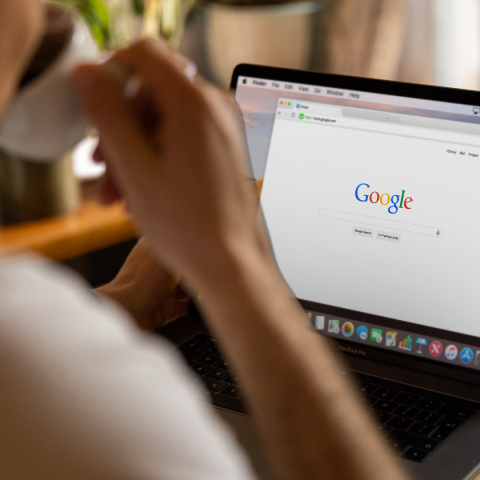The number of small businesses that have improved their digital capabilities has risen from 45% in 2014 to 79% in 2021. Since the pandemic, businesses have had to adapt and push their online presence more than ever to grow their businesses.
Advertising your business online will allow you to increase your online presence, ensure you are seen by a much wider audience, as well as help you convert a potential business into a real business. According to the UK Business Digital Index, 17% of small businesses have seen an increase in sales due to their online presence; 27% of these businesses sell through online channels.
So, how do we get started? Accelerate Wales for Business will show five ways you can effectively market your small business online.
Blogging
Writing a blog doesn't mean you have to become an expert on something outside of your business field overnight. For example, no one would expect you to write a blog about cars if you're an online clothing store. The point is, only you are familiar with your business area, and it should be something you can feel confident enough to create a blog about.
What is a blog? A blog is simply a diary or online column. You can either host your blog on your own website or use a free platform like WordPress and link it back to your website. The trick is to regularly update it with engaging content that will appeal to your target audience. Not only will you start to make a name for yourself as an industry expert, but you'll also increase the chances of people finding your website while using search engines. Search engines love high-quality new content, and posting regularly will make your site look fresh and appear higher in search engine results.
These days, more businesses are turning their attention to Flogging – a video version of creating a blog. This is a particularly entertaining way to communicate your knowledge to an audience, and it's a chance for them to see the face behind the business. Flogging has become very popular on social media platforms such as TikTok.
Email marketing
Are some still marketing by email? Yes, for sure. Email marketing has the highest return on investment for small businesses. It is an effective method of communicating with your customers, as much of your audience will have interacted with your business in some way already. In terms of GDPR, data can only be held and used with the user's permission. This can help you strengthen relationships with those interested, develop your brand, and generate sales. Using email also allows you to reach your customers on any device.
Mailchimp has a free as well as premium options for optimal use. The free version allows up to 2,000 contacts, 1 audience group, as well as many more options you need to get started as you create your database. Going forward, it then offers flexible payment options for additional specific equipment. Before you start, make sure you comply with the new General Data Protection Regulation (GDPR) – more information.
Pay per Click (PPC)
Google has now established itself as one of the leading search engines, making Google Ads the UK's largest ad platform for PPC marketing. Google Ads lets you target customers by keywords, location, demographics and behavior. Depending on the type of campaign you choose, your ads could appear in Google search results, on Google apps and partner sites, and on third-party websites visited by your target market through Google Display Network.
There's a cost involved, but Google Ads let you set a daily budget to keep your costs under control, and you don't have to spend a minimum. If you haven't used Google Ads before, Google has a guide to help you get started. Bing Ads work in a similar way, but may be a cheaper option as it owns a lower percentage of the search engine market. Both platforms allow you to monitor and measure results so you can keep track of what works and what doesn't.
Facebook ads
Facebook continues to be one of the leading social networking sites, and offers a great advertising space for small businesses. Facebook ads allow you to reach specific audiences based on their location, demographics, interests, behaviour and contacts. This means you can target people who are likely to be interested in your product or service regardless of whether they have searched for you.
Facebook ads can be a truly cost-effective way to reach a huge audience. Just ask Anglesey's luxury glamping business, Wonderfully Wild. Facebook ads played an integral part in expanding the business, and they got some of their best results by spending just £1 a day for 90 days on their campaigns. Similarly to Google Ads, Facebook gives you access to analytics information so you can gauge how well your ads are performing and to allocate spending accordingly.
Google My Business
Over half of all Google searches are now done via mobile, with a third of these relating to location. Surprisingly, many businesses have not added or claimed their place on the list of local businesses on Google. Why is this necessary? In short, to make it easier for customers to find you rather than your competitors.
Google My Business is a free resource that allows you to create an online business profile: including contact details, opening hours, website URL, description, and products and services. Your company will consistently appear in search results on any device and be visible on multiple Google platforms. Customers can also leave reviews of your business, which is of course another factor people will look for when deciding on a suitable business to provide products/services to.
Google My Business also lets you manage your details, interact with customers, follow reviews, and monitor your customers' behavior and actions. It's a good idea to treat your Google business page as if you make your social platforms by posting updates and content regularly to show how active you are as a business, as well as keeping your opening times etc. up to date around different holiday seasons.



